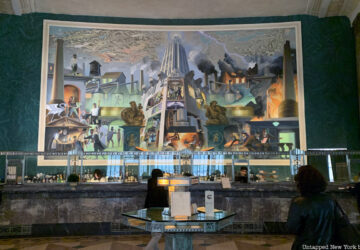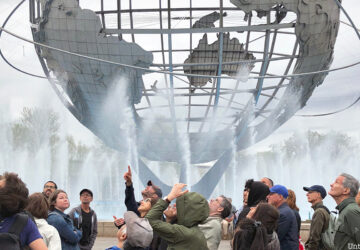8. The Slave Market Closed Because of the Coffee Industry

By the mid-eighteenth century, the Meal Market had undergone some renovations and it became a popular spot for the Merchants Coffee House to meet as well. These merchants, who belonged to a much more aristocratic class, feared the slave market would be an obstruction to the prospects of this new, more respectable industry. In 1762, the Common Council drafted a petition stating that “[the Meal Market] occasions a dirty street, offensive to the inhabitants on each side and disagreeable to those that pass and repass to and from the Coffee House, a place of great resort, that same be removed.” By that February, they successfully tore down the Meal Market after five decades.
Although the market closed, men, women, and children continued to be bought and sold throughout the city.





